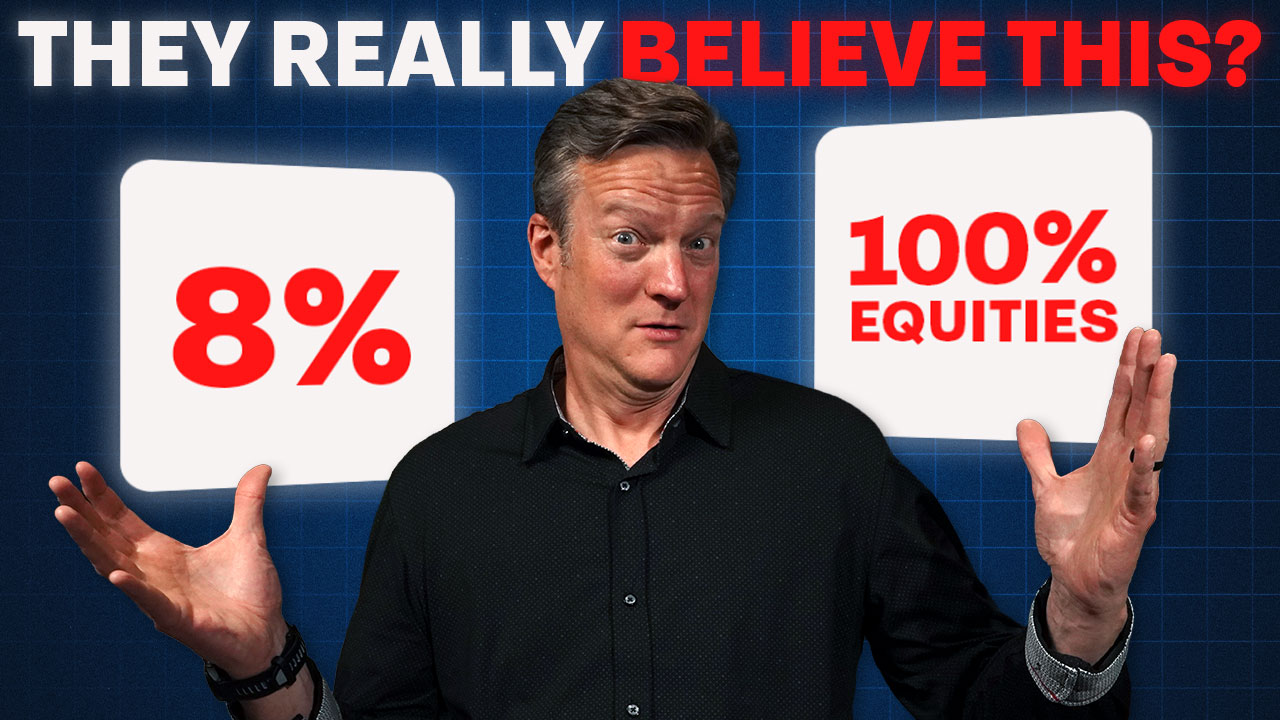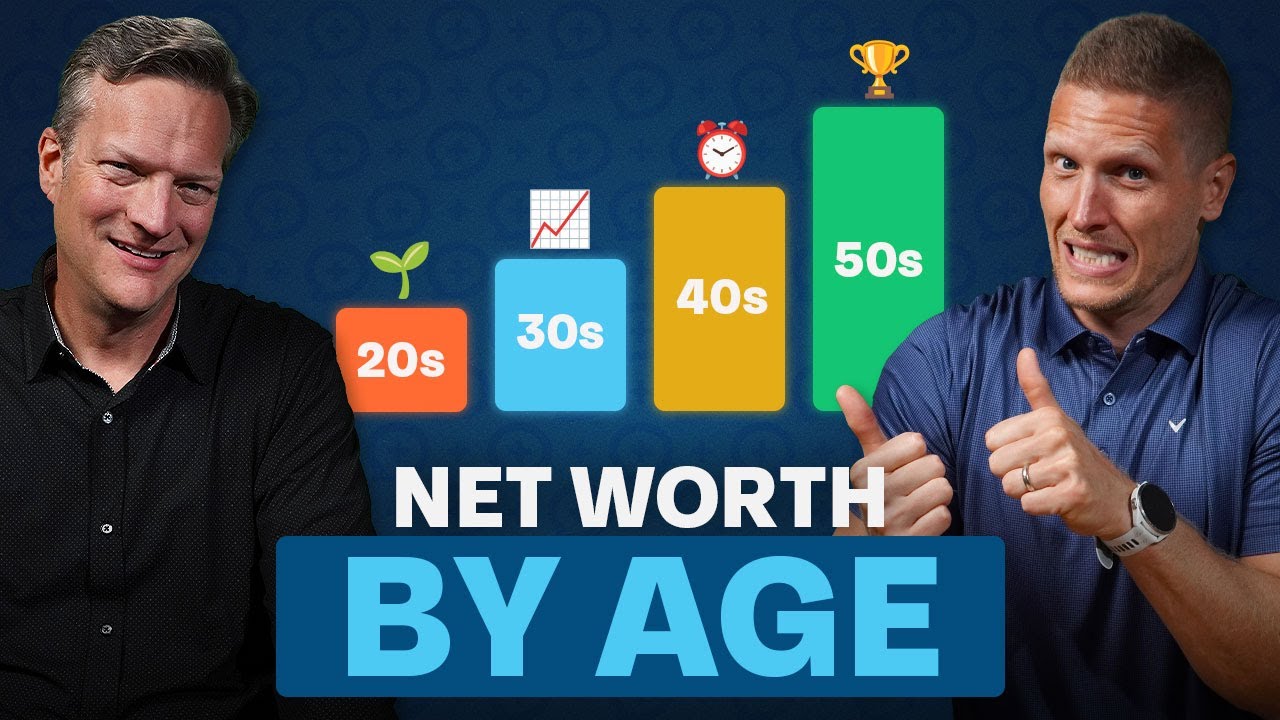But okay, bro, what if I'm in my 30s? What if I'm just now hearing this for the first time? Maybe I didn't know about personal finance. I didn't find the Money Guy show until I got into my 30s. We have a great deliverable for you called
"The Wealth Multiplier for Young Savers." Go download it at
moneyguy.com/resources, and this will show you how much you need to save on a monthly basis to get to one million dollars and to get to two million dollars. Because right now, we're talking about two million dollars being a lot of money, it's the rich number today. So if you just set that as your number, okay, well, what would you be saving just to get to the two million dollar threshold? This free deliverable will give it to you.
Yeah, and just to give you a flavor for what this is for 30-somethings, a 30-year-old it's gonna be around $680 a month, for a 35-year-old it's $1200 a month to get to 2 million, and for a 39-year-old, it's right over $1800 a month. Go to moneyguy.com/resources, just like Bo said, you can figure out what the simple goal is to start building those multi-million dollar stats. But Bo, we once again wanted to go above and beyond so we could actually talk about what is inflation. If you want to keep your purchasing power in check, what's required to do that for all of our financial mutants? If I'm 30 years old and I'm just starting out and I say, "Man, at retirement I want to be able to spend the equivalent of 2.2 million dollars today, and I've not done any saving up to this point, in order to do that, I've got to save a little over $2,100 a month. If I wait until 35 to get started, I have to save a little over $3,200 a month. If I wait till 39 to get started, I need to be saving almost $4,500 a month. If my finish line is age 65 and my goal is to have a standard of living 180 percent the median average American household income right now, so it is a lofty, lofty goal. But even someone in their 30s, these numbers are hard, but frankly, being a multi-millionaire is a hard thing to do. Yeah, you need to have a big shovel for a lot of these goals, and that's why I think it is important.
But we know that there's a whole community out there. I mean, we put the savings goal at 20 to 25 percent of your gross income, but a lot of you will share that you're saving 35, 40, some of you even saving 50 percent of your income. So I know that there are folks out there, but I don't want anybody to feel like we are closing the door on opportunity. And that's why I love the moneyguy.com resources. You know, if you get to a million and, and there was even, we did a TikTok where I said, "Hey, if you can just get to the first million, I think you'll be surprised how fast the second million will fall." And at the time I said four million, but now look, I was talking about somebody who has a big shovel still contributing. But I think you will find just if you understand the rules of doubling and how, you know, like Rule 72 and other things, you're going to see, typically with good market performance, and we've been in a bad market for 2022, it was not a great market, you might find that one million turns into two million, two million turns into four million, and we're talking about five, six, seven years. This is, you got this multiplying, and then it exponentially is growing on itself. You can do this. What's great is, and you've already said this, Brian, the bigger the pot gets, the faster the pot grows. That's the way that it works. So if you can figure out early on how to get those dollars working for you, you're likely going to be setting yourself up for success.
So you're probably sitting there in your 30s thinking, "Okay, well, how do I do this if my number is I gotta save somewhere between two thousand to four thousand dollars a month? That's a big nut. What are some things I can be thinking of?" The first one that we see: avoid lifestyle creep. It's really easy in your 30s, when you're in the messy middle, to think about, "Man, okay, I want the nicer car, and I want to do the home improvement, I want to move to the nicer house, and I want to take the nicer vacations." And if you're saving the way that you're supposed to, those things are not inherently bad. But if you're doing those things and allowing your lifestyle to expand, but your savings is not also expanding, I worry that you're missing the plot and you're robbing from your future. This is all about discipline, and that transitions right into discipline is needed not only to avoid lifestyle creep but make sure that lifestyle creep doesn't seep into big financial purchases, or you're at risk. I'm talking about vehicles, I'm talking about housing. It is one of those things I found, even in my own life, you are in the messy middle, meaning you start having children, you start having those decisions like buying homes. But there's also, it almost feels like you go back in time to high school a little bit because you move into a neighborhood, you've got the Joneses that live down the street. Don't get caught up in this comparison life because I think that even in social media and all the other things, walk to your own drumbeat, understand your why, and what you're actually building for so you can have success no matter where you are by decading your journey. And I would encourage you, if you want to know how to make those decisions, well, how to make the vehicles a decision, how to make the housing decision, we have tons of free deliverables available at moneyguy.com/resources to help you navigate how do I approach those decisions, what are the ways that I attack making the big decisions, and making them well. The other thing that we see people do in their 30s, Brian, that I think you have to be so careful of is don't let temporary problems lead to permanent solutions that create permanent problems. This is what we mean, maybe you're being pulled in a thousand different directions in the messy middle, and money gets tight. You think, "Man, maybe I should pull some money out of my 401K, or maybe things that maybe I should just stop saving, maybe I should..." and not recognizing that those decisions would seem like they might help in the short term really can have very long-term detrimental consequences to your wealth building.











